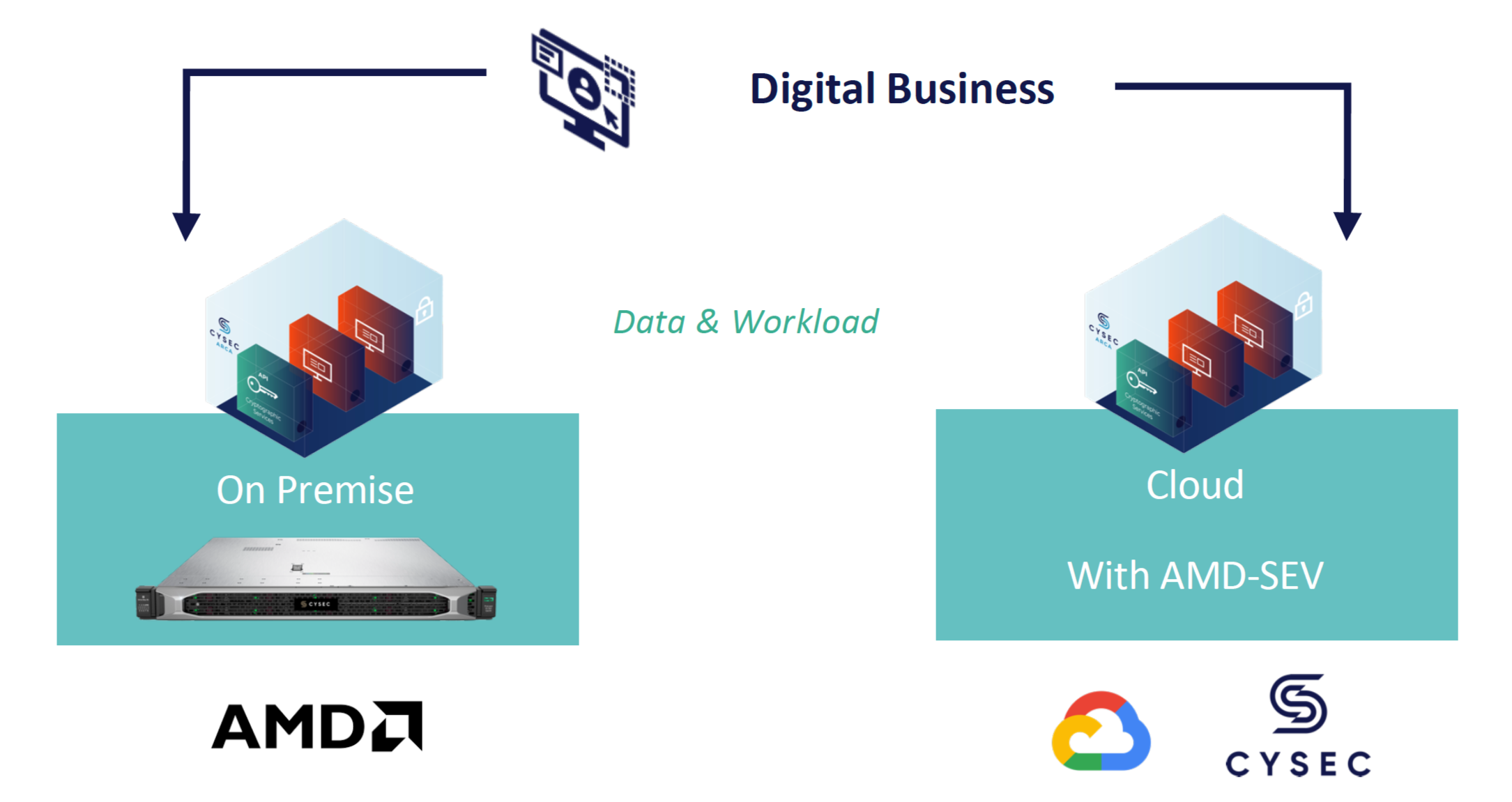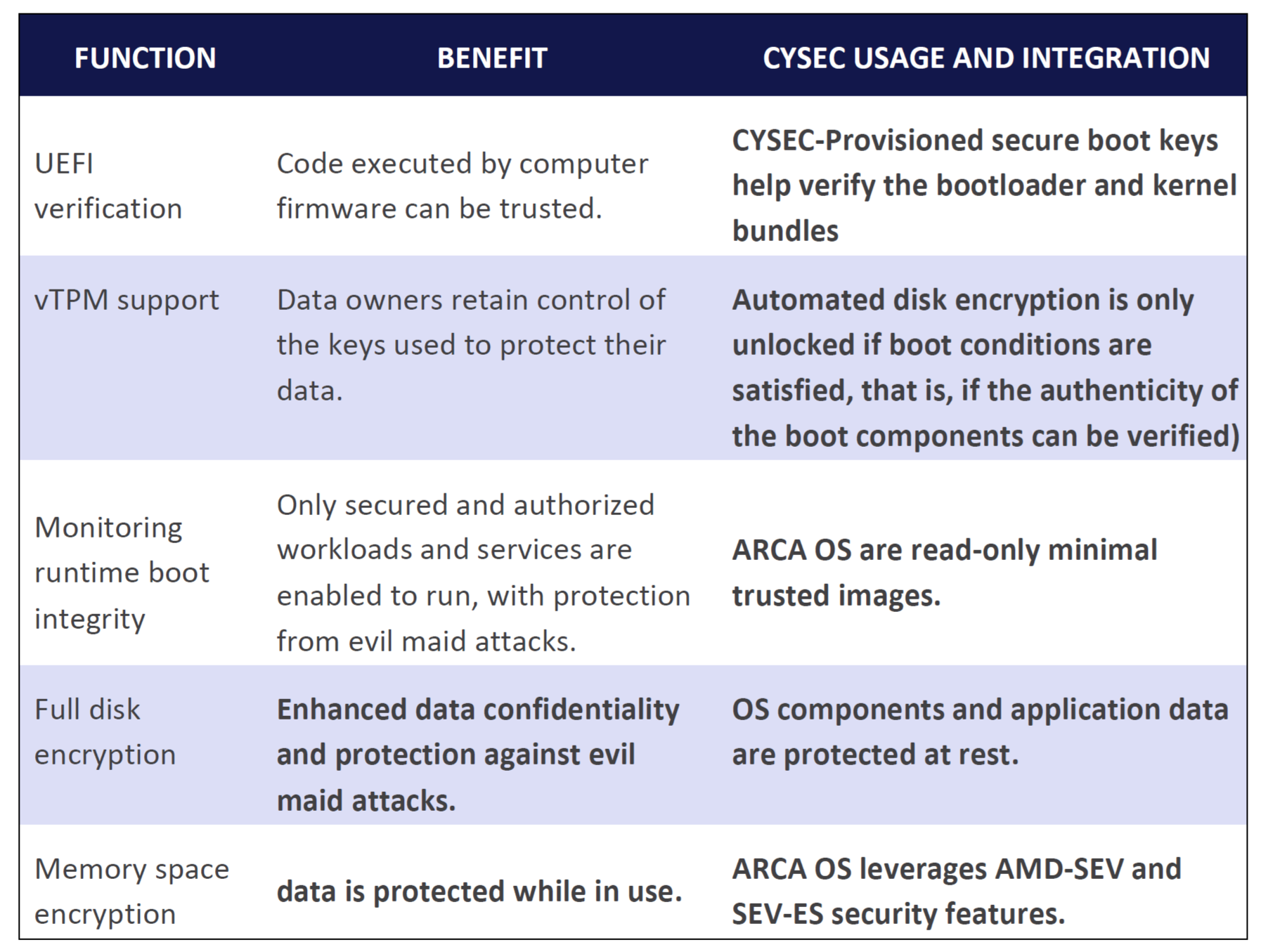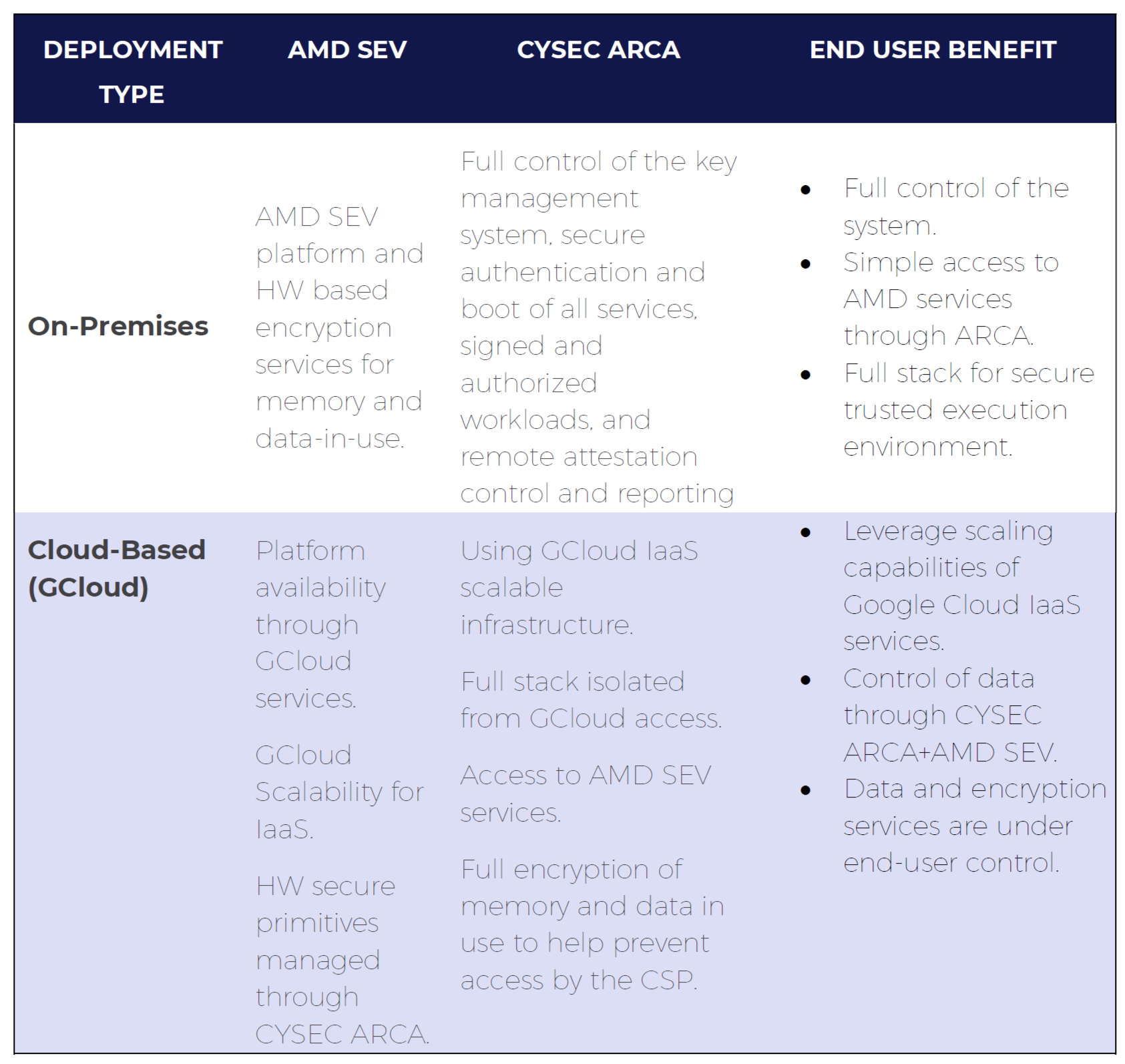Enterprises are accelerating their migration to digitalization and to adopting cloud-based services but remain reluctant to move sensitive and mission-critical data and workloads onto the cloud because of concerns that include.
We also evaluate on-premises technology deployments where internal breaches and attacks are common threats that must be addressed, such as misuse of data and applications initiated by legitimate users or malicious code installed in the enterprise software architecture.
Combining the AMD SEV platform and CYSEC software stack offers enhanced security and data encryption, whether on-premises or in the cloud. Users receive enhanced control over how their data is accessed and used with no need to involve a third-party service provider.
Confidential computing can help ensure data privacy and integrity by employing hardware-based encryption when enabled on both the host and the VM guest.
AMD EPYC™ processors contain an AMD Secure Processor that provides a hardware root of trust. Secure Encrypted Virtualization (SEV) uses the AMD Secure Processor to issue and manage keys that encrypt each virtual machine. This helps isolate the hypervisor and guests from each other. Enabling SEV on both the hypervisor and guest allows the guest OS to indicate which memory pages to encrypt. The hypervisor communicates with the AMD Secure Processor to manage the appropriate keys in the memory controller. AMD Secure Encrypted Virtualization-Encrypted State (SEV-ES) builds on this by encrypting CPU register contents when a VM stops running, thereby helping prevent CPU register information from leaking to the hypervisor. SEV-ES can also detect malicious modifications to a CPU register state.

AMD SME is enabled either via BIOS or through direct integration into the Linux kernel. Enabling and activating AMD SME usage in BIOS encrypts memory access and one need not activate Linux memory encryption.
The Linux kernel implements Content Security Policy (CSP) and provides the interaction between the AMD Secure Processor (AMD-SP) and the hypervisor. The AMD-SP provides a secure key management interface that performs common hypervisor activities, such as encrypting bootstrap code, snapshots, migrating, and debugging the guest.
AMD SEV-ES expands on AMD SEV by protecting the guest register state from the hypervisor. It encrypts the VM register state on each hypervisor transition to help prevent the hypervisor from seeing the data being used by the VM.

CONFIDENTIAL COMPUTING: CYSEC ARCA ON-PREMISES
ARCA by CYSEC is a full software stack that accelerates deployment of AMD SEV-based services by running natively on a server equipped with one or more AMD EPYC CPU(s) and offering a user-friendly Linux interface and Kubernetes API for service and workload development. Combining AMD SEV with CYSEC ARCA facilitates on-premises or cloud technology deployments while helping enhance security. On-premises deployments that use AMD SEV and ARCA receive the following benefits:
CONFIDENTIAL COMPUTING: CYSEC ARCA IN THE CLOUD
Cloud Service Providers (CSPs) began launching VM offerings based on AMD SEV technology along with the emergence of Confidential Computing efforts, such as the Confidential Computing Consortium where CYSEC is among the founders.
CYSEC ARCA uses existing Google components for initiating ARCA OS processes, such as the virtualized UEFI bootloader and virtual TPM, and boots only if components such as the bootloader, kernel, and OS bundle have not been tampered with. Once booted, the system forms a Trusted Computing Base (TCB) on which applicative workloads can be deployed using Kubernetes. ARCA manages the full stack and forms an integral part of the TCB. Integrating ARCA with AMD SEV encrypts data in use and active memory spaces. All services and workloads run in CYSEC ARCA, thereby isolating the system from Google services to further enhance security.
End users benefit from this architecture that allows them to use CYSEC ARCA to retain control of their execution environment, data set, and workloads by leveraging AMD SEV technology. They only need to trust Google Cloud during the initial sequence of launching CYSEC ARCA.

AMD AND CYSEC: DATA USAGE IN END USER CONTROL
Combining of AMD SEV technology with the CYSEC ARCA full software stack gives users enhanced control over their data via encryption services that limit both which workloads that can access what data and elements of the operating system. This helps ensure that the end user is the only owner and controller of the entire system.
The model is valid for both on-premises and cloud deployments using CSPs such as Google Cloud. Users can take advantage of Google’s scalability and availability services while using AMD SEV and CYSEC ARCA to segregate their datasets and applications from external access by the CSP.
